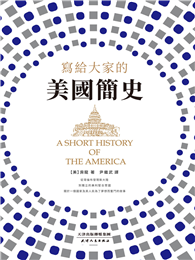In the 19th century, those controlling the steel industry amassed considerable fortunes. Subsequently, the 20th century witnessed oil as the principal resource for accumulating wealth. Presently, data, often referred to as the new oil, are among the most valuable assets. Seven of the world’s leading corporations, as measured by market value, were involved in data and artificial intelligence (AI) towards the end of 2019. This growth in Big Data and AI has spurred the fourth industrial revolution. Within this thesis, AI refers to the capacity of machines to execute tasks autonomously, based on algorithms, whilst adaptively responding to unfamiliar circumstances. As such, the thesis examines methods that empower computers to tackle problems that necessitate intelligence when resolved by humans. AI encompasses the study of intelligent problem-solving behaviour and the development of intelligent computer systems. Additionally, the emphasis here is placed on data-driven AI instead of rule-based AI. The central issue addressed in this thesis pertains to the discrimination faced by People of Colour (PoC), exacerbated by healthcare AI and algorithms. As detailed in the subsequent chapter, research has demonstrated that PoC are treated differently by medical technology; discrimination based on the algorithmic use of ethnic factors is a pervasive problem in hospitals.
| FindBook |
有 1 項符合
Algorithmic Bias in Medicine: A Study of Discrimination Against PoC in Healthcare AI的圖書 |
 |
Algorithmic Bias in Medicine: A Study of Discrimination Against PoC in Healthcare AI 作者:Ernst 出版社:Diplom.de 出版日期:2023-04-17 語言:英文 規格:平裝 / 32頁 / 21.01 x 14.81 x 0.2 cm / 普通級/ 初版 |
| 圖書館借閱 |
| 國家圖書館 | 全國圖書書目資訊網 | 國立公共資訊圖書館 | 電子書服務平台 | MetaCat 跨館整合查詢 |
| 臺北市立圖書館 | 新北市立圖書館 | 基隆市公共圖書館 | 桃園市立圖書館 | 新竹縣公共圖書館 |
| 苗栗縣立圖書館 | 臺中市立圖書館 | 彰化縣公共圖書館 | 南投縣文化局 | 雲林縣公共圖書館 |
| 嘉義縣圖書館 | 臺南市立圖書館 | 高雄市立圖書館 | 屏東縣公共圖書館 | 宜蘭縣公共圖書館 |
| 花蓮縣文化局 | 臺東縣文化處 |
|
|
圖書介紹 - 資料來源:博客來 評分:
圖書名稱:Algorithmic Bias in Medicine: A Study of Discrimination Against PoC in Healthcare AI
|











